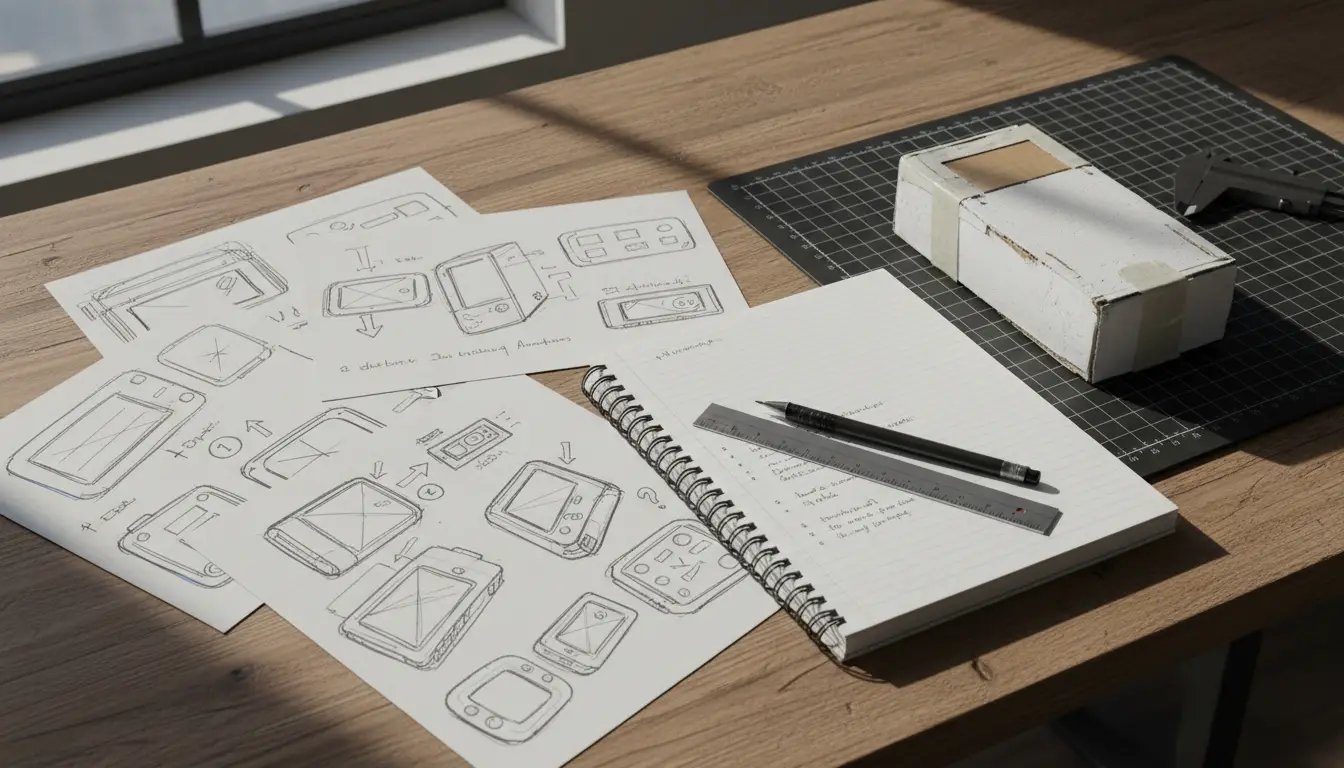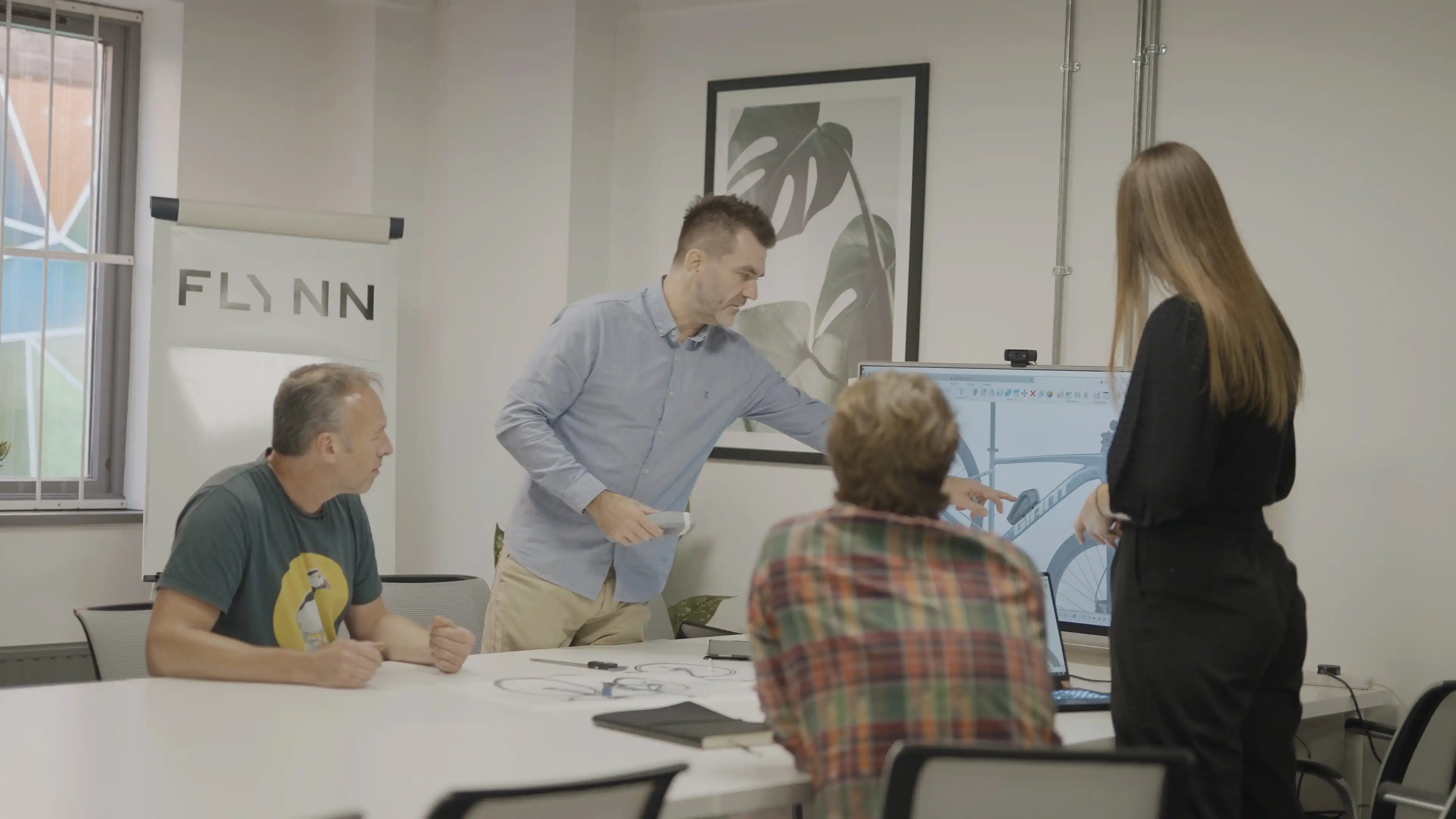Ethical Design and Social Impact: Innovation with A Conscience
Ethical Design and Social Impact: Innovation with A Conscience
As technology and innovation continues to progress in the world, the responsibility of product designers becomes increasingly significant. Beyond aesthetics and functionality, ethical design now plays a pivotal role in shaping a sustainable and inclusive future. In this article, we will explore the importance of considering ethical and social implications in product design and its potential to make a positive social impact. Central to this discussion are three key pillars: inclusivity, sustainability, and responsible innovation.
Inclusivity: Designing for All
Ethical design starts with inclusivity - the practice of creating products that cater to the diverse needs of individuals. Inclusivity involves recognizing and accommodating the needs of individuals with varying abilities, age groups, and cultural backgrounds. As designers, we must break away from the "one-size-fits-all" approach and embrace a user-centred design philosophy that considers the unique requirements of every user. It involves understanding the unique challenges faced by diverse users and moving beyond designing for a specific demographic.
This means going beyond accessibility compliance and actively involving people from different backgrounds, abilities, and age groups in the design process. This allows us to gain valuable insights into the challenges faced by different users and develop solutions that address these issues effectively, leading to products that are not only user-friendly but also genuinely inclusive. Inclusive design goes beyond product functionality; it has the ability to create positive social impact. When we design products that cater to diverse levels of ability and communities, we contribute to a more equitable society. Inclusive products empower individuals who are differently abled or from marginalized backgrounds, allowing them to participate fully in various aspects of life.
Microsoft demonstrates a resolute commitment to disability inclusion through its core belief that "When technology embraces the diversity of all individuals, there are no boundaries." By offering a diverse array of accessible accessories, they ensure that people with various disabilities can access the same technology that others often take for granted. However, their dedication goes beyond this point. They go the extra mile by providing a 3D printing service that enables individuals to completely personalize their accessories, catering to their specific needs. This empowers people to create a system that perfectly aligns with their unique requirements, ultimately allowing them to harness technology in a way that best suits their individual needs.

Cultural Sensitivity: Embracing Diversity

In an interconnected world, cultural sensitivity is paramount in ethical product design. This entails understanding and respecting the unique values, beliefs, and practices of various communities. As designers, we must be vigilant about avoiding cultural appropriation, stereotypes, or unintentional biases in order to create products that resonate positively with people from different cultural backgrounds.
Why is this important? By prioritizing cultural sensitivity, we enhance the overall user experience, ensuring that the product or service resonates with users from diverse backgrounds and is relevant to their needs. Embracing cultural diversity fosters a sense of belonging, as the product acknowledges and respects users' unique preferences, ultimately building trust and loyalty. Moreover, inclusivity lies at the heart of culturally sensitive design, making people worldwide feel welcome and confident in using the product or service, irrespective of their background and beliefs.
A British brewery faced criticism for a culturally insensitive choice in naming one of their Indian Pale Ales "Veda." In Hindu culture, Vedas are revered as significant religious texts, representing the oldest layer of Sanskrit literature, and serving as the oldest scriptures of Hinduism. Consequently, the brewery's decision to use the name Veda and incorporate Hindu iconography on the bottles was perceived by many as highly inappropriate and disrespectful, considering the sacred nature of these texts. With a deeper understanding of Hindu culture, the brewery could have easily avoided this controversy.
Designers must conduct thorough research and collaborate with individuals from diverse cultures to gain a deeper understanding of their unique needs and preferences. This will help us design products that celebrate diversity, promote cultural exchange, and foster a sense of belonging among users from different backgrounds. A culturally sensitive approach ensures that our products contribute positively to society and build bridges between cultures.
Avoiding Harmful Products: Ethical Decision-Making

While striving for innovative product design, it is crucial for designers to be mindful of the potential harm their creations might inflict on society. From environmental impact to user safety, every decision must undergo ethical scrutiny. Environmental mindfulness plays a pivotal role in product design, encompassing material selection, manufacturing, and packaging choices that minimize ecological consequences. Ethical product design extends to the end-of-life journey, incorporating recyclability and disassembly for effective recycling and reduced landfill burden. Furthermore, exploring repair and refurbishment options increases product longevity, reducing the need for frequent replacements, and promoting sustainability.
A prime example of a rushed product launch without adequate attention to detail and testing can be observed in the case of Hoverboards, which experienced immense popularity during 2015 and 2016. With the sudden surge in demand, numerous companies hurriedly introduced their versions of the product to capitalize on the trend. However, one of these companies failed to ensure proper quality control and safety measures.
As a consequence, many of their hoverboards were equipped with faulty batteries that had a high risk of overheating and catching fire. Furthermore, these boards were often poorly constructed, making them susceptible to easy breakage. Regrettably, this led to numerous injuries and, in some tragic instances, even loss of life. As a result, this particular model of hoverboard faced recalls and was eventually banned from further sale. The incident serves as a cautionary tale, highlighting the importance of meticulous testing and quality assurance before launching any product to ensure the safety and well-being of consumers.
In our pursuit of profit, ethical decision-making guides us to avoid creating products that may have negative social consequences. Steering clear of products that promote addiction or harmful behaviours is critical to responsible design. Instead, we should focus on developing products that enhance users' well-being and contribute positively to society. Ethical product design empowers us to bring about positive social change, aligning our creations with ethical principles that promote inclusivity and equality. By incorporating these practices, designers can contribute to a more sustainable and socially conscious future within the industry.
To conclude, as product designers, we have the power to shape the world we live in. Embracing ethical design principles and considering social impact in our work can make a profound difference in creating a better world for everyone. By prioritizing inclusivity, cultural sensitivity, and avoiding harmful products, we can ensure that our creations resonate positively with users from all walks of life.
The journey towards ethical design may present challenges, but it is a rewarding path that fosters innovation with a conscience. Let us embrace this responsibility with open hearts and minds, as each thoughtful decision we make can ripple through society, leaving a lasting and positive impact on the world. Together, we can lead the charge towards a brighter future where products are not just functional and beautiful but also ethical and socially responsible.
We provide businesses with product design consultancy, industrial design, prototype design & related services.
.avif)


